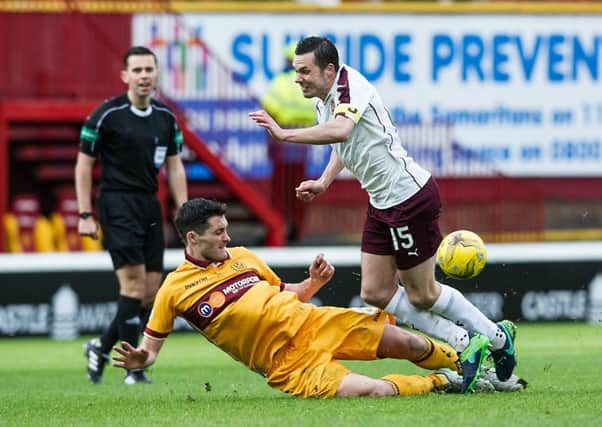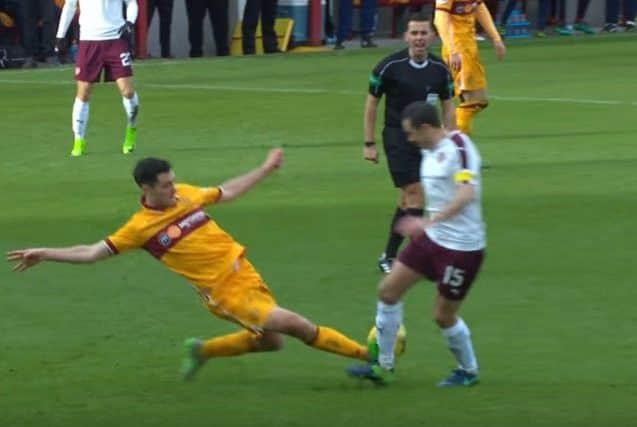Why a red card was the right call in Motherwell v Hearts


Mark McGhee was insistent this was not a red card. The Motherwell manager went as far as to call it a “great tackle”, based on Carl McHugh winning the ball before he went into his opponent.
Advertisement
Hide AdAdvertisement
Hide AdContrary to popular belief, there’s never been a major change in the rules regarding tackles over recent years. Instead, it’s been a greater emphasis placed on perceived recklessness and the force of tackles, and whether they’re endangering the safety of an opponent. That’s why we’re seeing an increase in tackles, such as this one, where a player takes the ball but is called for a foul. Again, contrary to popular opinion, there’s nothing in the rules of the game which mentions “winning the ball” with relation to fouls.


When a player makes a tackle, the referee is judging whether it is careless, reckless or made with excessive force, with the severity of punishment increasing through the three stages. Careless tackles needn’t be punished with a card, reckless tackles should be punished with a caution, and excessive force will see the player sent off.
It’s all about interpretation, but it’s difficult to imagine any modern day referee, at the very least, not giving a foul against McHugh for his challenge on Don Cowie. As we see in Image One, McHugh keeps a straight leg as he follows through and goes into Cowie above the player’s ankle. It’s careless and reckless. But the key to the sending off is whether McHugh used excessive force, as recklessness alone does not warrant a red card.
In what was far from a blood and thunder game, McHugh goes into the challenge at high speed. It really was a bolt from the blue and this would have likely influenced the referee’s decision.
There’s little doubt he’s endangering the safety of an opponent, something referees will also consider. Returning again to Image One, we see Cowie had his foot slightly raised off the ground. It’s easy to imagine, if Cowie had his foot planted, that this could have been a pretty nasty injury.


Though McGhee may be wide of the mark with his assessment, his side still deserve a degree of sympathy based on recent events.
Last week’s Ref Review looked at their home clash with Rangers. While there was little doubt about Michael O’Halloran’s red card, tackles by Scott McDonald and Rangers defender Rob Kiernan, like McHugh’s, were a little more debatable. Motherwell also felt they were the victim of a similar foul away at Ross County in midweek. In each case, the decision went against the Steelmen.
There were shades of both McDonald’s challenge (which was punished with a red card) and Kiernan’s (which wasn’t) in the McHugh incident. Like McDonald, the midfielder planted a straight leg into the ankle/shin of an opponent, while the speed and force was similar to Kiernan’s. The latter was the only one not punished with a red card, and it’s very difficult to imagine any other result than a home win for McGhee’s side against nine-man Rangers had the referee made the right call.
Advertisement
Hide AdAdvertisement
Hide AdFailing to get the rub of the green across the three separate incidents has contributed to successive home defeats for the club, which could have played a part in McGhee’s post-match frustrations.
• Craig Anderson is a former fully qualified referee. He is also the man behind SPL Stats on Twitter.
SEE ALSO